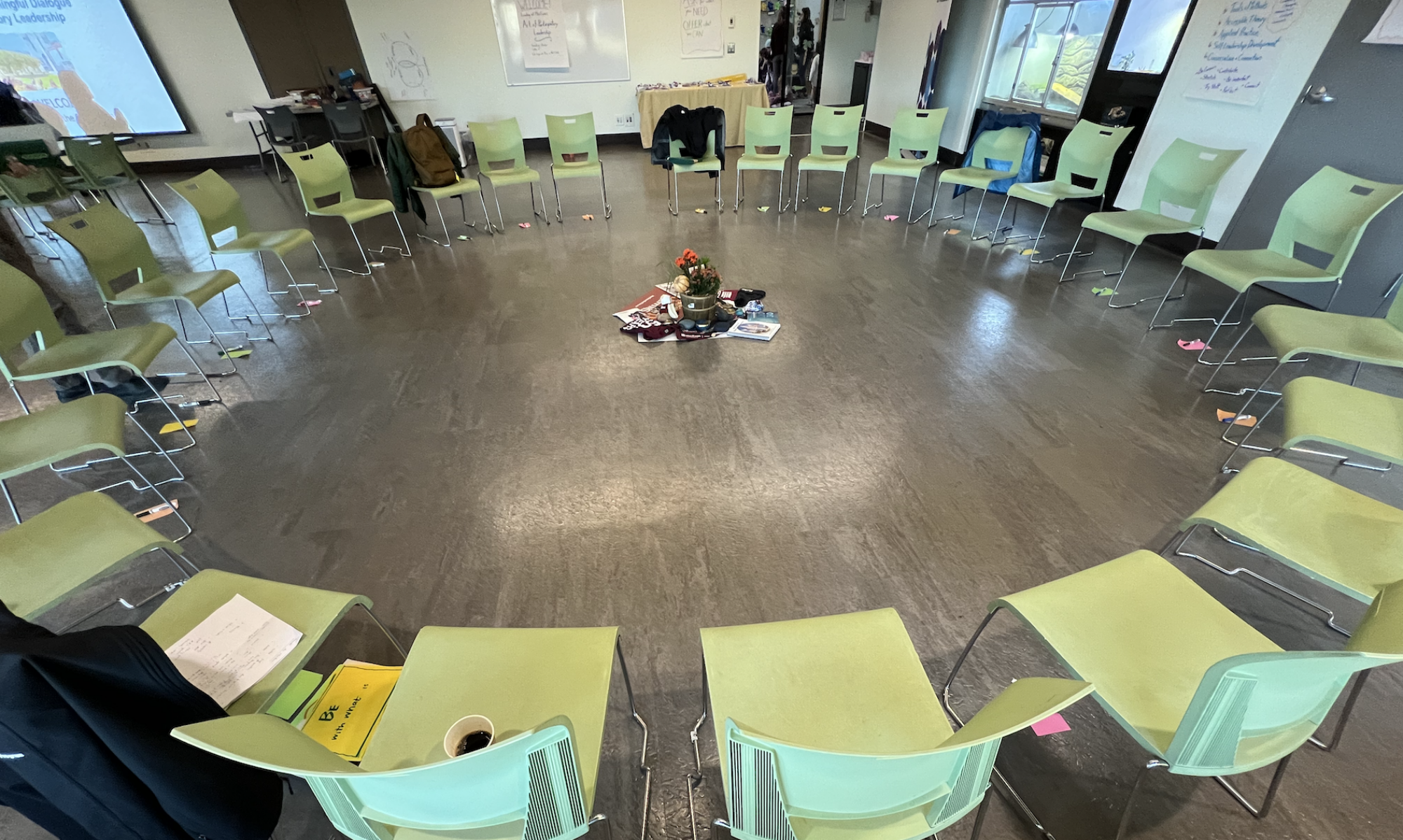I love these words from Peggy Holman. She has a gift of identifying the core threads.
What is it like when your peer’s assumptions about how the world works seem fine to them, yet your own path turns up nothing but contradictions? Such is the fate of those who are poised to re-invent the world. The prevailing wisdom just doesn’t fit your data. And the implications…they could change everything.
The cultural narrative when this story begins is often called “Newtonian” or “classical science”. This body of knowledge dates from the seventeenth and eighteenth centuries. “They pictured a world in which every event was determined by initial conditions that were, at least in principle, determinable with precision. It was a world in which chance played no part, in which all the pieces came together like cogs in a cosmic machine (Prigogine & Stengers, 1984, p. xiii).” It was the perfect metaphor for the rising Industrial Age. And it still influences the dominant approaches to leadership, strategic planning and “change management” (the name itself a misnomer through the lens of complexity) today.
As Wheatley characterizes it: “we have broken things into parts and fragments for so long and have believed that was the best way to understand them, that we are unequipped to see a different order that is there, moving the whole. (Wheatley M. J., 1992)“ (p. 41) British physicist David Bohm captures this dilemma when he says, ‘The notion that all these fragments are separately existent is an illusion and cannot do other than lead to conflict and confusion’. (Wheatley M. J., 1992, p. 24)”
Early in the nineteenth century, a few scientists were running into that confusion. Contradictions defied explanation. For example, thermodynamics indicated that if the universe was a machine, it was running down. Yet Darwin’s followers found that biological systems were actually running up, becoming more organized. The complex whole exhibited properties that could not be readily explained by understanding the parts (Prigogine & Stengers, 1984).



